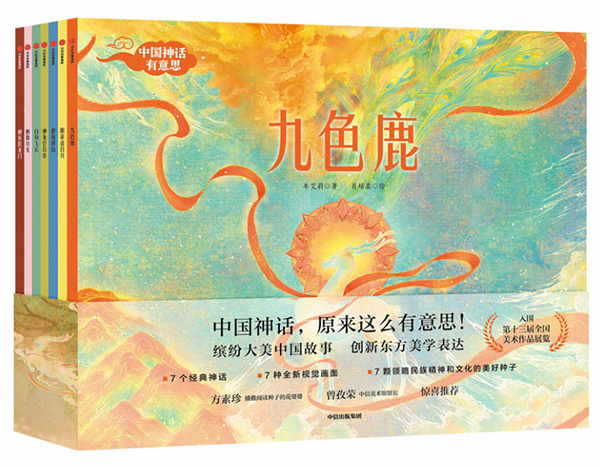Adding color to tales of the past
By Mei Jia | China Daily | Updated: 2020-07-01 07:15

Lessons of remixing
Mou keeps drawing inspiration from Chinese cultural traditions, and believes "careful plans and smart thinking are the ways to help revive traditions and attract modern readers".
Mou has been teaching for over a decade, after obtaining a bachelor's degree in drama literature and a PhD in theater and Chinese traditional opera from the Central Academy of Drama, and her master's degree from Sydney University. She has noticed that more students have begun to embrace guofeng or guochao, meaning Chinese-style trends, spurred on by both mainstream entertainment and social media platforms. "As our society gets wealthier, it's natural that Chinese youths have reclaimed greater pride and confidence in their own cultural roots," Mou says.
Picture books have long been a personal interest, she adds, and since her baby girl's birth early last year, she became even more interested in original picture books, "especially those that nurture Chinese aesthetics".
Mou encourages her students not to merely repeat ancient artistic expressions, but to try and find something new.
Imagination is key. Liang Yuan, creator of A Carp Leaping the Dragon Gate, had similar fear as Qiu did with his old tale. Luckily, she followed Mou's suggestion to depict ocean waves using "traditional patterns like cirrus clouds", which gave her a new outlet to demonstrate her skills.
In The Yangque Bird Creating Sun and Moon, Zhang Yuting married Art Deco patterns with images of a phoenix, while in White Feathered Flying Suit, Zhang Xinyu adapted gongbi paintings, a classic Chinese style employing meticulous brush strokes, to provide the elaborate backgrounds for her Tang-Dynastyera characters. Her blending of classy and cute made the Dongxiang story "fun fodder" for young readers.
In another tale, about a rabbit trying to scoop the reflection of the moon out of some water with lotus leaves, Wang Meiling chose drawing the figures and backgrounds, cut them out and recorded their movements on film to achieve a 3D effect.
























